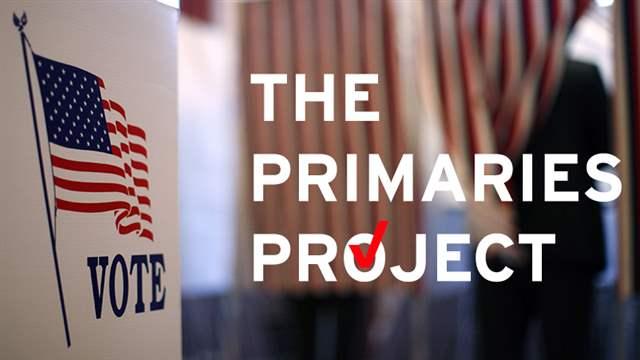The following is the appendix to “Political polarization and congressional candidates in the 2018 primaries,” a report from The Primaries Project at Brookings.
Building on the databases from 2014 and 2016, the 2018 Primaries Project Candidates dataset tracks a variety of demographic characteristics and issue positions noted by congressional candidates throughout the 2018 primaries cycle. Data collection for this project began in February 2018 (starting with candidates in Texas) and concluded in September 2018 (ending with candidates in Rhode Island and New Hampshire). Data was collected for over 2,200 House and Senate candidates.
Candidate data was collected by tracking candidate websites within a one-month window prior to the candidate’s primary election. A second round of candidate coding was conducted within a one-week window of each primary election to confirm candidates’ party categories (more details below). A third round of coding was performed to confirm demographic characteristics and issue positions. In cases where websites were disconnected or unavailable upon the third round of coding, data was confirmed from archived sources when possible.
Coding of candidate data relied upon current campaign websites. If a candidate did not have a current campaign website and was an incumbent, their .gov official website was instead coded. If a candidate had neither a campaign website nor an official .gov website, then campaign Facebook pages were used. Personal Facebook pages, Twitter accounts, YouTube pages, and other social media accounts were not included in the database coding.
What candidates are included?
This dataset tracks information on every candidate who appeared on a major party primary election ballot throughout the 2018 primary election cycle. Original candidate lists were taken from those made available by state secretary of state offices. All candidates who appeared on the primary ballot remained in the dataset. Those candidates who were disqualified, suspended, or formally withdrawn were excluded.
Considering this project’s focus on primary elections, this data focuses on Republican and Democratic candidates for Congress. However, our data include minor party candidates in states that observe the top-two primary (California and Washington), since the major party candidates run on the same ballot as the minor party candidates. Due to Louisiana’s use of a two-round nonpartisan blanket primary, Louisiana candidates are excluded from our data.
In states that include conventions as part of their nominating process (e.g., Utah and Virginia), the dataset includes candidates that competed in the convention even if they did not advance to a primary ballot.
Issue details
Eighteen different issue positions were tracked through the course of the 2018 primaries project, with issue positions gathered exclusively from candidate campaign websites. In most cases, issues were discovered on webpages labeled “Platform,” “Issues,” “Press Releases,” or “Endorsements.” Text, pictures, and videos embedded on campaign websites were all considered for issue coding. The only content on websites that was not considered came from social media widgets and comment sections.
Each issue position had four possible codes. The first two codes are issue-specific and noted under each sub-heading below. The second two codes are: “Complicated/Complex/Unclear” when a candidate issued a complicated, complex, or otherwise unclear position and “No information provided” for when a candidate did not provide any comments on a particular issue.
Affordable Care Act/Health care
The first code captured candidates who explicitly supported the Affordable Care Act, including those who support particular parts of the Act (e.g. coverage of preexisting conditions). The second code included candidates who support repeal, defunding, or replacement. The “complicated/complex/unclear” code includes candidates who argue the Act needs serious improvement (that is, it needs to be seriously “fixed” or “expanded”).
Single-payer/Medicare-for-All
In addition to the ACA question, we tracked whether or not a candidate issued explicit support for single-payer health care or a Medicare-for-All programming. (This code did not include Medicare Buy-In proposals.) If a candidate was noted as supporting single-payer, they necessarily were coded as “complex” on the ACA.
Minimum wage
The first code captured candidates who explicitly supported raising the federal minimum wage. The second code included candidates who expressly opposed raising the minimum wage. The “complicated/complex/unclear” code includes candidates who proposed leaving this issue to the states.
Federal tax policy
The first code includes candidates who support raising taxes on corporations and/or wealthy individuals. The first code also includes candidates who oppose the Tax Cuts and Jobs Act (TCJA). The second code includes those candidates who are opposed to raising taxes (or endorse lowering taxes for all). The second code also includes candidates who support TCJA and those candidates who have signed the Americans for Tax Reform “Taxpayer Protection Pledge.” The “complicated/complex/unclear” code includes candidates supporting FairTax or Flat Tax systems.
Business regulations
The first code indicated candidates in favor of governmental regulations on business (e.g., “smart regulations on business”). The second code captured candidates who opposed business regulations (e.g., “oppose burdensome regulations,” “opposed red tape,” etc.).
National debt/deficit
The first code includes candidates who explicitly made comments in favor of increasing the national debt or federal deficit. The second code called for either lowering the national debt or deficit reduction. The second code also includes candidates who support a balanced budget amendment for federal spending. Comments regarding the debt ceiling were not included in this code.
Social Security
The first code includes candidates who endorse protecting the status quo Social Security system. The second category includes candidates who propose reforms to reshape Social Security, including increasing the retirement age, means-testing beneficiaries, or privatizing the system. (Candidates who propose reforms to raise payroll taxes were included in the Federal tax policy code.)
Comprehensive immigration reform
The first code covers candidates favoring comprehensive immigration reform, one that explicitly includes a path to citizenship for illegal immigrants. The first code also includes candidates who support DACA or the DREAM Act. The second code incorporates those who oppose comprehensive immigration reform, including those who oppose amnesty, favor “building a wall,” support “enforcing our current immigration laws,” oppose DACA, or oppose the DREAM Act.
Gun control/Second Amendment rights
The first code includes candidates who are in favor of any additional efforts of gun control, including stricter background checks. Candidates endorsed by Moms Demand Action for Gun Sense in America, Everytown for Gun Safety, the Brady Campaign to Prevent Gun Violence, or other local gun control organizations were also counted in this first code. The second code analyzes candidates who oppose gun control or support “no exceptions to the Second Amendment.” The second code also includes candidates endorsed by the National Rifle Association (NRA) or those who note membership in the NRA.
Abortion
The first code includes candidates who are “pro-choice” and in favor of reproductive freedoms. This code also included any positive comments regarding funding to Planned Parenthood or candidates endorsed by Planned Parenthood, EMILY’s List, or other pro-choice organizations. The second code includes candidates who are “pro-life” and oppose abortion. This code also included any negative comments regarding federal funding of Planned Parenthood. It also includes those endorsed by National or State Right to Life organizations.
Same-sex marriage/equality
The first code includes candidates who support same-sex marriage, other same-sex equality protections, or “LGBT rights.” The first code also includes those candidates supported or endorsed by the Human Rights Campaign. The second code captures candidates who oppose same-sex marriage, argue in favor of the “traditional family,” or define marriage as “between one man and one woman.” This second code also includes candidates supported or endorsed by the Family Research Council. The “complicated/complex/unclear” code includes candidates who argue this issue is best left to the states or call for the removal of all federally-recognized marriages.
Federal PreK-12 education policy
The first code includes candidates who support federal proposals for major education reform (including supporting increased federal funding towards education and supporting Common Core.) The second code includes candidates who called for local solutions to education reform, including candidates who opposed common core, support cutting the Department of Education, support local charter school programs, or support “returning education decisions to parents and teachers.”
Criminal justice reform
The first code includes candidates who support criminal justice reform, including candidates who support prison reform and community policing. The second code includes those explicitly opposed to criminal justice reform.
Climate change
The first code includes candidates who support regulations or other measures to combat climate change/global warming. The first code also includes candidates who support the U.S. rejoining the Paris Climate Accord. The second code includes candidates who explicitly oppose climate change related regulations (including carbon taxes) or those who denied the existence or effects of climate change. The second code includes candidates who support the Trump Administration’s withdrawal from the Paris Climate Agreement.
Campaign finance reform
The first code includes candidates who favor campaign finance reform, including overturning Citizens United, banning SuperPAC’s or implementing public campaign funding. The second code captured candidates in favor of the status quo campaign finance system.
Legalization/decriminalization of marijuana
The first code includes candidates who favor legalization or decriminalization of marijuana. The second code includes candidates opposed to these efforts. The “complicated/complex/unclear” code includes candidates who proposed leaving this issue up to the states.
Defense spending
The first code includes candidates who support reducing military spending (i.e., they support cuts to the military budget). The second code incorporates candidates who oppose reducing military spending, including those candidates arguing for a fully-funded, full-equipped, or strong military.
Handling terrorism
The first code includes candidates who support status quo efforts to combat terrorism abroad. The second code includes candidates who call for increased American intervention to combat terrorism abroad.
Russia
The first code includes candidates who argue Russia is a political enemy of the United States. The second code incorporates candidates who argue Russia is a political ally.
Election results details
The 2004 to 2016 election results are borrowed from the Federal Election Commission “Election Results” archive. Figures 1 and 2 do not include candidates in Top Two primary systems. As of this writing, the 2018 primary election results are not yet finalized from the FEC, so our data is using election night vote totals from the Associated Press. Candidate vote percentages were re-calculated using the vote count of the candidate divided by the vote counts for all listed candidates to standardize values across years and states and mitigate for differences caused by write-in votes and other issues. References in text to candidates “winning” and “losing” report final outcomes, regardless of whether a candidate placed into a runoff election or not (where applicable).
Additional demographic details
Table 10: Highest education level noted by primary candidate, 2018
| Highest educational degree |
Number of candidates (%) |
| High school |
39 (1.7%) |
| Bachelor’s degree |
527 (23.1%) |
| Master’s degree (includes MBA) |
373 (16.4%) |
| J.D. |
403 (17.7%) |
| M.D./D.M.D/D.D.S./D.V.M./D.O. |
86 (3.8%) |
| Ph.D. |
105 (4.6%) |
| Other Doctorate |
8 (0.4%) |
| Other |
53 (2.3%) |
| No education information listed |
686 (30.1%) |
Table 11: Marital status noted by primary candidate, 2018
| Marital status | Number of candidates (%) |
| Married |
1241 (54.4%) |
| Single |
25 (1.1%) |
| Widowed |
18 (0.8%) |
| Divorced |
15 (0.7%) |
| Engaged |
11 (0.5%) |
| Other |
6 (0.3%) |
| No information |
964 (42.3%) |
Additional issue positions
Acknowledgements
Thanks to Christine Stenglein and Nick Zeppos for their research assistance. Additional thanks to Jeremiah Cha, Renata Thornton, and Jack Walsh for their help with data collection.
The Brookings Institution is a nonprofit organization devoted to independent research and policy solutions. Its mission is to conduct high-quality, independent research and, based on that research, to provide innovative, practical recommendations for policymakers and the public. The conclusions and recommendations of any Brookings publication are solely those of its author(s), and do not reflect the views of the Institution, its management, or its other scholars.
Brookings gratefully acknowledges the program support provided to Governance Studies by Democracy Fund and the William and Flora Hewlett Foundation.
Brookings recognizes that the value it provides is in its absolute commitment to quality, independence, and impact. Activities supported by its donors reflect this commitment.
The Brookings Institution is committed to quality, independence, and impact.
We are supported by a diverse array of funders. In line with our values and policies, each Brookings publication represents the sole views of its author(s).





